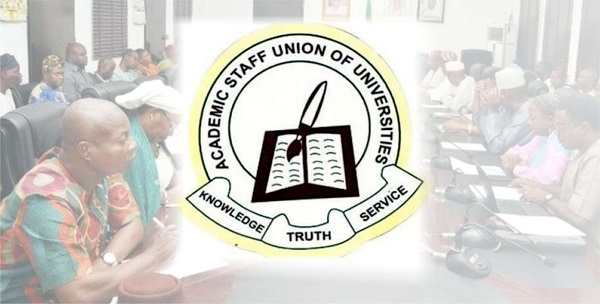The Federal Government has appealed to the Academic Staff Union of Universities (ASUU) to shelve its planned nationwide strike expected to begin next week, assuring that it is addressing all outstanding issues raised by the union.
Minister of Education, Dr. Tunji Alausa, made the appeal on Wednesday in Abuja while briefing journalists on the progress of negotiations between the government and university-based unions.
ASUU had earlier issued a 14-day ultimatum on September 28, threatening to embark on strike at the end of the period, which expires on October 12.
Alausa said the government had demonstrated commitment to resolving the union’s demands through several interventions, including the release of ₦50 billion for earned academic allowances and the inclusion of ₦150 billion in the 2025 budget for the revitalisation of tertiary institutions.
> “The President has kept his promises. We have addressed promotional arrears and resolved the issues of wage awards and allowances. By next year, all arrears, including the 2025 wage award, will be fully cleared. The government is sincere and committed,” Alausa said.
He revealed that the Mahmud Yayale Ahmed Federal Government Tertiary Institutions Expanded Negotiation Committee had been reconstituted and inaugurated to fast-track dialogue with academic and non-academic unions across universities, polytechnics, and colleges of education.
> “We are finalising the components of the condition of service proposed by ASUU. Our counterpart committee is also working to conclude its response. Hopefully, by the end of today or tomorrow, the Mahmud Yayale Ahmed Committee will present the Federal Government’s counter-offer to ASUU,” the minister added.
Alausa disclosed that President Bola Tinubu had given a clear directive that every effort must be made to avert another disruption in the university system.
> “The President has mandated us to do everything humanly possible to avoid a strike. Senior government officials have been working round the clock to produce a robust and sustainable response to the unions’ demands. These issues have lingered for more than a decade, but this administration is determined to resolve them permanently,” he stated.
The minister noted that the government had adopted a unified negotiation approach—replacing the previous system where separate committees handled talks for different tertiary subsectors.
> “In the past, there were different committees for universities, polytechnics, and colleges of education. That was inefficient. Now, we have one expanded committee engaging all unions to ensure coherence and a holistic understanding of their needs,” he said.
According to Alausa, about 80 percent of the demands from various unions are similar, while the remaining 20 percent address specific institutional and career concerns.
> “We have reviewed all the requests and understand their peculiarities. The committee has already commenced work and will continue to engage the unions expeditiously to achieve a mutually beneficial agreement,” he assured.
Alausa urged ASUU and other unions to prioritise dialogue over strikes, describing industrial action as a last resort that disrupts academic progress.
> “We know you have been patient, but please, don’t use strikes as your first option. These issues have persisted for decades, but President Tinubu has shown genuine political will and commitment to education. We will resolve this comprehensively and sustainably,” he appealed.
He further disclosed that talks on the new conditions of service were nearing completion, marking the final stage of the ongoing negotiation process.
> “Most of the concerns raised have been resolved. We are now finalising the conditions of service. We ask for patience—this government is truthful and genuinely committed to ending this crisis once and for all,” Alausa said.
Meanwhile, ASUU has commenced mobilisation of its members nationwide in preparation for a possible warning strike once its ultimatum expires on Sunday.


















































































 EduTimes Africa, a product of Education Times Africa, is a magazine publication that aims to lend its support to close the yawning gap in Africa's educational development.
EduTimes Africa, a product of Education Times Africa, is a magazine publication that aims to lend its support to close the yawning gap in Africa's educational development.